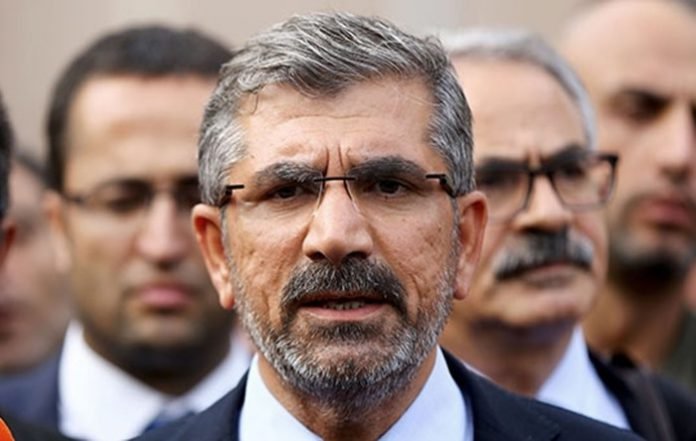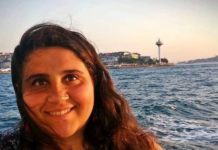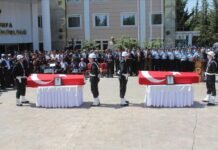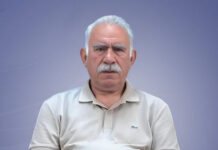An indictment concerning the killing of prominent human rights lawyer Tahir Elçi that charges a Kurdish militant with murder is not realistic, Turkish Minute reported, citing an investigation by Forensic Architecture, a London-based multidisciplinary research group.
Tweeting in both English and Turkish, the researchers said Turkish prosecutors holding an armed group member responsible for Elçi’s murder was problematic, saying that their findings clearly showed he could not have killed Elçi.
Elçi, the former head of the Diyarbakir Bar Association, was killed in November 2015 while delivering a speech in the southeastern province of Diyarbakir during a clash between the Turkish police and members of the outlawed Kurdistan Workers’ Party (PKK).
Calling for a peace rally on what turned out to be the day of his death in Sur’s historic district, Elçi said he wanted no violence, war, destruction or armed operations in the area.
Turkey had blockaded Sur at the time as part of mass operations against the PKK, with Diyarbakir’s historic “four-legged minaret” damaged during the clashes. Elçi was shot to death in front of the minaret, where he was delivering his call for peace.
Turkish prosecutors claimed three police officers and a PKK member at the scene were suspects in the murder, on which no light has been shed until now.
Investigating cases of state violence and human rights violations through architectural evidence and 3D technology, Goldsmith research group Forensic Architecture refuted the claims that the PKK member had killed Elçi.
The group had earlier investigated the controversial case at the request of the Diyarbakir Bar Association and released a report in 2019.
After a process of elimination, the report concluded that the prominent Kurdish human rights defender was most likely killed by one of three police officers present at the scene.
Our latest investigation is out. We examined the 2015 killing of #TahirElçi, a prominent Kurdish human rights lawyer, in Diyarbakır, Turkey. Here's how we did it.
Video on our website: https://t.co/i3BhGxmTnu
Long-read over at @openDemocracy: https://t.co/H1JPbAzvpC
— Forensic Architecture (@ForensicArchi) February 8, 2019
“On 3 March, the trial of # TahirElçi’s killing reopens. But there is a problem with the indictment. It charges the officers we identified, but also charges a PKK militant, despite our findings showing clearly that he could not be responsible for Elçi’s death,” Forensic Architecture tweeted, raising questions ahead of a court hearing this week.
On 3 March, the trial of #TahirElçi’s killing reopens. But there is a problem with the indictment. It charges the officers we identified, but also charges a PKK militant, despite our findings showing clearly that he could not be responsible for Elçi’s death. #TahirElçiİçinAdalet pic.twitter.com/nDVoCtmADr
— Forensic Architecture (@ForensicArchi) February 25, 2021
Three police officers — Mesut S., Fuat T. and Sinan T. — are charged in the indictment with “causing death by culpable negligence,” which carries a prison sentence of two to six years.
On the other hand fugitive Ugur Yakışır, an alleged member of the PKK, is charged with “murdering Tahir Elçi and two police officers [who died on the same day], attempting to destroy the unity of the state and possession of a firearm.”
Prosecutors demand multiple life sentences and an additional 45 years in prison for Yakışır.
The next hearing in the trial will be held at the Diyarbakır 10th High Criminal Court on Wednesday.
Elçi’s lawyers accuse the Turkish police and the judicial authorities of hiding a 13-second segment of video footage captured by police cameras that allegedly shows the moment Elçi was shot.
“We compared the video records; there is a 13-second gap in that record. Tahir Elçi was shot in these 13 seconds,” Bianet quoted attorney Mahsuni Karaman as saying on Monday.
Elçi received death threats in 2015 after stating that “the PKK is not a terrorist group. While some of its actions may be called as such, it is an armed political movement with significant support” during a live TV show on CNN Türk hosted by a pro-government columnist Ahmet Hakan.
Elçi was briefly detained in November 2015 over remarks that sparked a wave of death threats against him. He was subsequently released pending trial and faced up to seven-and-a-half years in prison.
Two days after Elçi’s murder, the pro-Kurdish Peoples’ Democratic Party (HDP) and the main opposition Republican People’s Party (CHP) submitted a request to the Turkish parliament to set up a commission of inquiry into the murder.
However, President Recep Tayyip Erdoğan’s ruling Justice and Development Party (AKP) and its nationalist ally rejected the application thanks to their majority in parliament.















